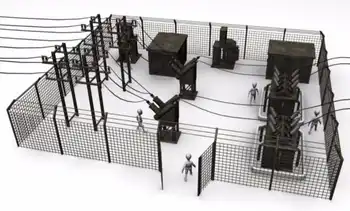Law made utility shut-offs easier
HARRISBURG, PENNSYLVANIA - The Responsible Utility Consumer Protection Act, known as the Chapter 14 law, was enacted one night during the legislative session last November. No public hearings were held.
The bill came about after Philadelphia Gas Works persuaded Republican House Speaker John Perzel that it needed protection from customers who were gaming the system to avoid paying their bills. PGW pointed to its extraordinarily high level of write-offs for uncollectible bills. In 2004, those write-offs amounted to 11.25 percent of PGW revenues.
Perzel's original bill to make service shut-offs easier affected only PGW. Other electric and gas utilities, such as Pennsylvania Electric Co., clamored to be let in on the legislation, even though state Public Utility Commission statistics showed that their write- offs for uncollectible bills were in what business experts consider a normal range of 2 percent to 3 percent of revenues.
Blaine Uplinger, a lobbyist for FirstEnergy Corp., called the bill an effort to "crack down on people who are eluding payment, but have the ability to pay," not the truly poor.
"We have been a longtime advocate for people who can't pay their bills," Uplinger said. "Our own employees contribute."
FirstEnergy owns Pennsylvania Electric Co., Metropolitan Edison Co. and Pennsylvania Power Co. in the state.
Gov. Ed Rendell signed the bill after Perzel removed some of the more-criticized provisions, including a $40 fee for filing complaints about utilities with the PUC. He also urged dubious legislators to support the bill, saying it would address the "problem of rising utility bill delinquencies" while ensuring that electric and gas service remained available to "customers with legitimate financial, medical and other problems."
The Chapter 14 law took effect Dec. 14. In the first four months of this year, utility shut-offs soared 113 percent from the same period in 2004.
Then came a tragedy that has defined the new law in the eyes of many. On May 14, fire destroyed a house in Hastings, Cambria County, killing four people and seriously injuring two others.
Pennsylvania Electric Co. had shut off power to the house on May 11, and the family had left a candle burning in the bathroom for light. The family cat is believed to have nudged the candle, causing it to tip over.
Recently, the PUC said it plans to fine Penelec $250,000 for repeated violations of state law and administrative errors that preceded the Hastings shutoff.
The utility failed on several occasions to refer the family, which had total annual income below 150 percent of the federal poverty level, to its own community assistance program, the PUC said. That program could have lowered the family's electric bill to a more affordable level and might have averted the shut-off, officials said.
Related News

$453M Manitoba Hydro line to Minnesota could face delay after energy board recommendation
WINNIPEG - A recommendation from the National Energy Board could push back the construction start date of a $453-million hydroelectric transmission line from Manitoba to Minnesota.
In a letter to federal Natural Resources Minister Jim Carr, the regulatory agency recommends using a "certificate" approval process, which could take more time than the simpler "permit" process Manitoba Hydro favours.
The certificate process involves public hearings to weigh the merits of the project, which would then go to the federal cabinet for approval.
The NEB says this process would allow for more procedural flexibility and "address Aboriginal concerns that may arise in the circumstances of…




